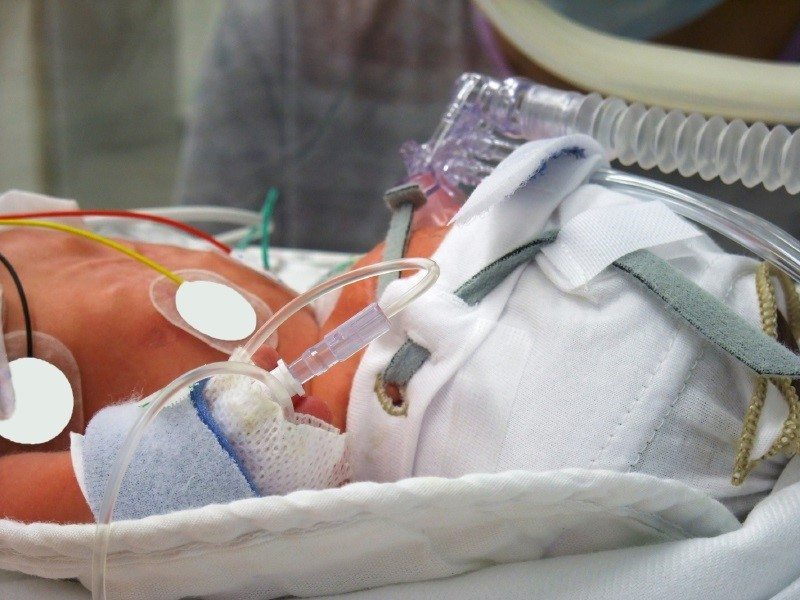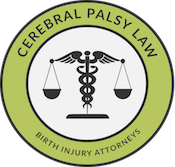Hypoxic Ischemic Encephalopathy (HIE; Birth Asphyxia) Attorneys in Dearborn, Michigan
If your loved one was diagnosed with hypoxic ischemic encephalopathy and you believe it was the result of medical malpractice, we encourage you to seek legal help. Funds secured from a successful medical malpractice claim will allow your loved one to make great strides in his or her rehabilitation and lifestyle. To contact our Dearborn, Michigan hypoxic ischemic encephalopathy (HIE) lawyers, you may fill out our online contact form or call us toll-free at (888) 592-1857. Dearborn HIE attorneys from our birth trauma law firm will evaluate your case for free and discuss your legal options with you. Our Dearborn HIE lawyers will not charge you until they win or settle your medical malpractice case.
What is HIE?
Hypoxic Ischemic Encephalopathy in Dearborn, Michigan
Hypoxic ischemic encephalopathy is commonly referred to as birth asphyxia, intrapartum asphyxia, or neonatal encephalopathy (NE), hypoxic ischemic encephalopathy is a type of brain injury that results from oxygen deprivation. When inadequate amounts of oxygen reach a baby’s brain before, during, or just after delivery, cell death occurs within the brain and the infant often suffers permanent brain damage. While neonates are able to withstand short periods of oxygen deprivation before and during delivery, experiencing prolonged periods of oxygen deprivation can lead to severe—and occasionally fatal—injuries.
Another way to understand HIE is by dissecting the term hypoxic ischemic encephalopathy—hypoxic refers to hypoxia (or hypoxemia), which is characterized by decreased oxygen levels in the blood. Ischemic refers to ischemia, which is characterized by insufficient oxygen flow to the brain. Encephalopathy is simply the general term given to any disorder of the brain.
Hypoxic Ischemic Encephalopathy (HIE) from Medical Malpractice
HIE and Medical Negligence in Dearborn & Dearborn Heights, MI
Because hypoxic ischemic encephalopathy results from anything that interferes with the flow of oxygenated blood to the baby’s brain, HIE comes with a wide array of possible causes. There are several complications associated with pregnancy, labor, and delivery that can lead to fetal oxygen deprivation without proper medical attention and care. Medical professionals are required, based on standards of care, to prevent HIE at all stages of pregnancy and delivery. Listed below are three main classifications for the causes of HIE.
- Partial Prolonged Asphyxia is characterized by oxygen deprivation for around 30 minutes.
- Acute Profound Asphyxia is characterized by long, complete spells of oxygen deprivation. It is the most extreme form of HIE.
- Mixed Injury Pattern Asphyxia: is characterized by acute profound asphyxia and partial prolonged asphyxia.
Some other known causes of HIE not listed above include the misuse of Pitocin and Cytotec (labor-inducing medications), prolonged labor, delayed emergency C-section, cephalopelvic disproportion (CPD), breech presentation, face presentation, macrosomia, premature rupture of membranes (PROM or PPROM), anesthesia mistakes, mishandled neonatal ventilation after birth, fetal stroke, intracranial hemorrhages (brain bleeding), fetal monitoring errors, and premature birth.
Hypoxic Ischemic Encephalopathy: Treatment and Therapy
Dearborn, Michigan HIE Rehabilitation Options
Based on modern research, all infants with a hypoxic ischemic encephalopathy diagnosis must undergo hypothermia treatment within six hours of the oxygen-depriving insult. Hypothermia treatment is a process in which medical professionals use a cooling blanket and/or cooling cap to decrease an infant’s body temperature to roughly 33.5 degrees Celsius for 3 days (72 hours). The process allows brain cells to recover and prevents the progression of brain damage. Infants must meet the following requirements in order to undergo hypothermia treatment:
- The infant must be older than 36 weeks of gestation
- The hypoxic ischemic event must have taken place within six hours of the onset of treatment
- The baby’s blood must show signs of acidity (an indication of oxygen deprivation). To read more about the specifics of this stipulation, visit our Hypothermia Treatment page.
Hypothermia treatment is the only treatment for hypoxic ischemic encephalopathy that is known to correct, improve, and stop the initial brain damage. However, several forms of more supportive therapy can help the child adjust to and rehabilitate from any conditions or impairments associated with hypoxic ischemic encephalopathy.
Medical Malpractice Claims: Hypoxic Ischemic Encephalopathy
Dearborn, Michigan Hypoxic Ischemic Encephalopathy (HIE) Lawyers & Attorneys
 Recuperating from hypoxic ischemic encephalopathy requires expensive and time-consuming medical and lifestyle adjustments. Financial compensation from successful HIE medical malpractice lawsuits has opened countless individuals and families up to the resources they need for proper rehabilitation and well-being. Our Dearborn, Michigan hypoxic ischemic encephalopathy (HIE) lawyers urge you to learn more about your legal options today.
Recuperating from hypoxic ischemic encephalopathy requires expensive and time-consuming medical and lifestyle adjustments. Financial compensation from successful HIE medical malpractice lawsuits has opened countless individuals and families up to the resources they need for proper rehabilitation and well-being. Our Dearborn, Michigan hypoxic ischemic encephalopathy (HIE) lawyers urge you to learn more about your legal options today.
For reference, below we’ve listed a few instances of medical malpractice that may cause hypoxic ischemic encephalopathy:
- Misdiagnosing or inadequately treating any cause or risk factor for hypoxic ischemic encephalopathy (such as uterine rupture, umbilical cord prolapse, nuchal cords, or placental problems)
- Mismanaging a Vaginal Birth after C-section (VBAC) delivery
- Failing to properly address, read, and act on signs of fetal distress
- Delaying emergency C-sections
- Failing to inform the family about hypothermia treatment
- Failing to perform hypothermia treatment within the guidelines; Failing to properly follow protocols for hypothermia treatment (including the proper facilities and infant transportation schemes)
If you think medical malpractice was at the root of your loved one’s hypoxic ischemic encephalopathy diagnosis in Dearborn, Michigan (or a different city), don’t hesitate to reach out to our Dearborn HIE attorneys. You may fill out our online contact form or call our HIE lawyers toll-free at (888) 592-1857.
More Information on Hypoxic Ischemic Encephalopathy from our Dearborn, Michigan Hypoxic Ischemic Encephalopathy (HIE) Lawyers
Below, we’ve listed some additional information on HIE—we encourage you to peruse our blogs, images, articles, resources, and informational pages on hypoxic ischemic encephalopathy in order to better acquaint yourself with the condition. Don’t hesitate to reach out with any questions or legal inquiries.
- An Overview of HIE
- Hypoxic Ischemic Encephalopathy Resources in Dearborn, Michigan
- Infographic: Hypoxic Ischemic Encephalopathy
- Hypoxic Ischemic Encephalopathy Blogs:
- Hypothermia Treatment Information
- Choosing a Michigan HIE Lawyer for Your HIE Case
